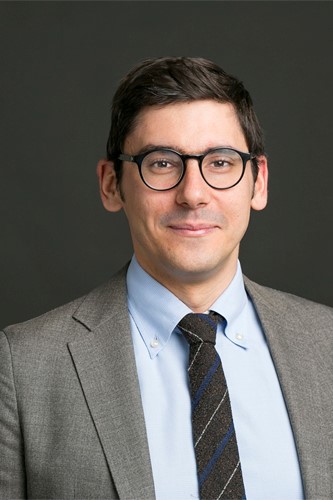Studying at the University of Verona
Here you can find information on the organisational aspects of the Programme, lecture timetables, learning activities and useful contact details for your time at the University, from enrolment to graduation.
Academic calendar
The academic calendar shows the deadlines and scheduled events that are relevant to students, teaching and technical-administrative staff of the University. Public holidays and University closures are also indicated. The academic year normally begins on 1 October each year and ends on 30 September of the following year.
Course calendar
The Academic Calendar sets out the degree programme lecture and exam timetables, as well as the relevant university closure dates..
| Period | From | To |
|---|---|---|
| primo semestre triennali | Sep 19, 2016 | Jan 13, 2017 |
| secondo semestre triennali | Feb 20, 2017 | Jun 1, 2017 |
| Session | From | To |
|---|---|---|
| Prove intermedie primo semestre | Nov 7, 2016 | Nov 11, 2016 |
| Appelli esami sessione invernale | Jan 16, 2017 | Feb 17, 2017 |
| Prove intermedie secondo semestre | Apr 10, 2017 | Apr 13, 2017 |
| Appelli esami sessione estiva | Jun 5, 2017 | Jul 7, 2017 |
| Appelli esami sessione autunnale | Aug 28, 2017 | Sep 15, 2017 |
| Session | From | To |
|---|---|---|
| Sessione autunnale | Nov 30, 2016 | Dec 1, 2016 |
| Sessione invernale | Apr 5, 2017 | Apr 7, 2017 |
| Sessione estiva | Sep 11, 2017 | Sep 13, 2017 |
| Period | From | To |
|---|---|---|
| Vacanze natalizie | Dec 23, 2016 | Jan 5, 2017 |
| Vacanze pasquali | Apr 14, 2017 | Apr 18, 2017 |
| Vacanze estive | Aug 7, 2017 | Aug 25, 2017 |
Exam calendar
Exam dates and rounds are managed by the relevant Economics Teaching and Student Services Unit.
To view all the exam sessions available, please use the Exam dashboard on ESSE3.
If you forgot your login details or have problems logging in, please contact the relevant IT HelpDesk, or check the login details recovery web page.
Academic staff
Borello Giuliana
 giuliana.borello@univr.it
giuliana.borello@univr.it
 045 802 8493
045 802 8493
 simona.gamba@univr.it
simona.gamba@univr.it
 neliana.orlandi@univr.it
neliana.orlandi@univr.it
Study Plan
The Study Plan includes all modules, teaching and learning activities that each student will need to undertake during their time at the University.
Please select your Study Plan based on your enrollment year.
1° Year
| Modules | Credits | TAF | SSD |
|---|
2° Year activated in the A.Y. 2017/2018
| Modules | Credits | TAF | SSD |
|---|
3° Year activated in the A.Y. 2018/2019
| Modules | Credits | TAF | SSD |
|---|
| Modules | Credits | TAF | SSD |
|---|
| Modules | Credits | TAF | SSD |
|---|
| Modules | Credits | TAF | SSD |
|---|
| Modules | Credits | TAF | SSD |
|---|
Legend | Type of training activity (TTA)
TAF (Type of Educational Activity) All courses and activities are classified into different types of educational activities, indicated by a letter.
Industrial Economics (2018/2019)
Teaching code
4S00509
Teacher
Coordinator
Credits
9
Language
Italian
Scientific Disciplinary Sector (SSD)
SECS-P/01 - ECONOMICS
Period
primo semestre lauree triennali dal Sep 17, 2018 al Jan 11, 2019.
Learning outcomes
Industrial economics analyses strategic choices of firms and the other economic agents such as suppliers, clients, competitors and regulators. Main aim of the course is learning to critically assess economic phenomena linked to these agents.
We will go through theoretical models of price discrimination, product differentiation, innovation, vertical and horizontal integration, comparing the results with empirical evidence and case studies.
Program
The module starts with a revision of basic microeconomic concepts and oligopoly models. We then move on more specific topics such as firm behaviour in competitive environments such as:
- foundations of microeconomics; market structure and market power; technology and cost
- monopoly power: theory and evidence; price discrimination, linear and non-linear pricing; variety and quality in a monopoly
- oligopoly and strategic interaction: static games and Cournot competition; price competition a' la Bertrand; sequential games, first and second mover.
- anti-competitive strategies: limit pricing, entry deterrence, predatory behaviour, price fixing and repeated games, collusion (how to detect it and fight it)
- contracts between firms: horizontal integration, vertical integration and price restrictions
- non-price competition: advertising, market power, information and competition, R&D and patents
- network
---module structure---
- Lectures on theoretical models, empirical evidence and case studies
- Tutorials, to apply the theoretical concepts
During the teaching semester there will be a tutoring service held by graduate students, to solve problems and support learning of exercises similar to the one on which you’ll be examined.
During the academic year there will be the lecturer’s office hours. The textbook, slides and problem sets are coherent with the syllabus. Further teaching material will be available on the Moodle page of the module.
| Author | Title | Publishing house | Year | ISBN | Notes |
|---|---|---|---|---|---|
| C. Garavaglia | Economia industriale: Esercizi ed applicazioni (Edizione 1) | Carocci | 2011 | 88-430-3803-6 | |
| L. Pepall, D. J. Richards, G. Norman, G. Calzolari | Organizzazione industriale (Edizione 3) | Mc Graw Hill | 2017 | 8838669201 |
Examination Methods
Syllabus, teaching material and exam format are the same for attending and non-attending students. Coherently with what taught, the Industrial Economics assessment is a WRITTEN EXAM in which the student is asked to:
a) solve problems analytitcally
b) comment critically current affair cases linked with the taught topics
c) answer theory questions
All of these concur to for the final mark. More details will follow during teaching and in the online course material.
--- Half-Term Test
The half-term test is not compulsory.
The first partial test will cover topics taught in the first part of the module, the second partial test will cover the remaining topics.
Each partial test is considered “passed” if and only if the grade is at least 15/30. Who passes the first test can sit the second test in the first date of the Winter exam session (primo appello). Who does not pass either of the two partial tests will have to sit the full exam. The final grade will be the simple average of the two tests grades (as long as both grades are at least 15).
Alternatively, students may take the full exam, which will be based on the whole syllabus.
Type D and Type F activities
| years | Modules | TAF | Teacher |
|---|---|---|---|
| 1° | Advanced Excel Laboratory (Verona) | D |
Marco Minozzo
(Coordinator)
|
| 1° | Excel Laboratory (Verona) | D |
Marco Minozzo
(Coordinator)
|
Career prospects
Module/Programme news
News for students
There you will find information, resources and services useful during your time at the University (Student’s exam record, your study plan on ESSE3, Distance Learning courses, university email account, office forms, administrative procedures, etc.). You can log into MyUnivr with your GIA login details: only in this way will you be able to receive notification of all the notices from your teachers and your secretariat via email and also via the Univr app.
Graduation
List of thesis proposals
| theses proposals | Research area |
|---|---|
| Proposte di tesi triennali | Various topics |































